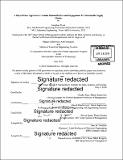| dc.contributor.advisor | Charles Fine and David Simchi-Levi. | en_US |
| dc.contributor.author | Prout, Jonathan (Jonathan Paul) | en_US |
| dc.contributor.other | Leaders for Global Operations Program. | en_US |
| dc.date.accessioned | 2016-12-05T19:55:40Z | |
| dc.date.available | 2016-12-05T19:55:40Z | |
| dc.date.copyright | 2016 | en_US |
| dc.date.issued | 2016 | en_US |
| dc.identifier.uri | http://hdl.handle.net/1721.1/105630 | |
| dc.description | Thesis: S.M. in Engineering Systems, Massachusetts Institute of Technology, School of Engineering, Institute for Data, Systems, and Society, 2016. In conjunction with the Leaders for Global Operations Program at MIT. | en_US |
| dc.description | Thesis: M.B.A., Massachusetts Institute of Technology, Sloan School of Management, 2016. In conjunction with the Leaders for Global Operations Program at MIT. | en_US |
| dc.description | Cataloged from PDF version of thesis. | en_US |
| dc.description | Includes bibliographical references (pages 76-78). | en_US |
| dc.description.abstract | Demands for shorter lead times and smaller order quantities, a greater emphasis on sustainable sourcing, and better management of supply chain risks are challenges Li & Fung is addressing by reshaping its relationship with its vendor base. The current work seeks to develop a data-driven approach for vendor base rationalization and vendor engagement as part of a larger initiative within the company to move from transactional vendor relationships to ones of greater collaboration and support. The primary contribution of this project is to provide Li & Fung with a rationalization and engagement methodology that leverages vendor performance and capability data collected by Li & Fung, as well as the author's own on-site observations of vendors, to address three main topic areas: vendor evaluation, vendor selection, and vendor engagement. 1. Vendor evaluation addresses the question of how Li & Fung measures the performance of vendors. This is an important aspect of vendor rationalization because the performance parameters used to evaluate the vendors are the behaviors that are promoted. A balanced scorecard taking into account a variety of performance considerations is presented as the tool to evaluate vendor performance. 2. Vendor selection addresses the question of how Li & Fung decides which vendors to continue to do business with and to what extent. These are essential questions to answer because the strength of the supply chain depends on the strength of the links in that chain. Two data streams providing a holistic picture of a vendor's historical performance, production capacity, production capabilities, and engagement level are used to select the right mix of vendors fit for the business's needs. 3. Vendor engagement addresses the question of how to build vendor relationships in a way that provides mutual incentive and benefits in improving performance and profitability over time. Presented as the foundation for this relationship is a vendor engagement package, which includes an objective set of performance data to monitor the vendor over time. It is through this vendor engagement package that Li & Fung exercises its influence to commit vendors to improvement plans aligned with business goals. The short-term accomplishment of the work was to successfully implement the rationalization methodology on a pilot product category within an operating group to reduce the vendor base from 39 to 19 and to identify three vendors for strategic partnerships. The long-term accomplishment of the work was to provide a robust vendor rationalization and engagement methodology that can be improved upon over time and applied across the remainder of the product categories within the operating group. | en_US |
| dc.description.statementofresponsibility | by Jonathan Prout. | en_US |
| dc.format.extent | viii, 101 pages | en_US |
| dc.language.iso | eng | en_US |
| dc.publisher | Massachusetts Institute of Technology | en_US |
| dc.rights | M.I.T. theses are protected by copyright. They may be viewed from this source for any purpose, but reproduction or distribution in any format is prohibited without written permission. See provided URL for inquiries about permission. | en_US |
| dc.rights.uri | http://dspace.mit.edu/handle/1721.1/7582 | en_US |
| dc.subject | Institute for Data, Systems, and Society. | en_US |
| dc.subject | Sloan School of Management. | en_US |
| dc.subject | Engineering Systems Division. | en_US |
| dc.subject | Leaders for Global Operations Program. | en_US |
| dc.title | A data-driven approach to vendor rationalization and engagement for sustainable supply chains | en_US |
| dc.type | Thesis | en_US |
| dc.description.degree | S.M. in Engineering Systems | en_US |
| dc.description.degree | M.B.A. | en_US |
| dc.contributor.department | Leaders for Global Operations Program at MIT | en_US |
| dc.contributor.department | Massachusetts Institute of Technology. Engineering Systems Division | |
| dc.contributor.department | Massachusetts Institute of Technology. Institute for Data, Systems, and Society | |
| dc.contributor.department | Sloan School of Management | |
| dc.identifier.oclc | 963209592 | en_US |
